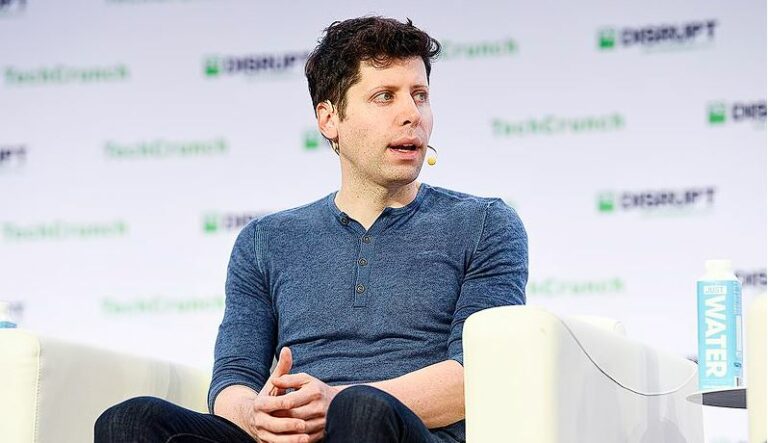Artificial intelligence tools have captured the public’s attention in recent months, but many of the people who helped develop the technology are now warning that greater focus should be placed on ensuring it doesn’t bring about the end of human civilization.
A group of more than 350 AI researchers, journalists, and policymakers signed a brief statement saying, “Mitigating the risk of extinction from AI should be a global priority alongside other societal-scale risks such as pandemics and nuclear war.”
The letter was organized and published by the Center for AI Safety (CAIS) on Tuesday. Among the signatories was Sam Altman, who helped co-found OpenAI, the developer of the artificial intelligence writing tool ChatGPT. Other OpenAI members also signed on, as did several members of Google and Google’s DeepMind AI project, and other rising AI projects. AI researcher and podcast host Lex Fridman also added his name to the list of signatories.
“It can be difficult to voice concerns about some of advanced AI’s most severe risks,” CAIS said in a message previewing its Tuesday statement. CAIS added that its statement is meant to “open up discussion” on the threats posed by AI and “create common knowledge of the growing number of experts and public figures who also take some of advanced AI’s most severe risks seriously.”
NTD News reached out to CAIS for more specifics on the kinds of extinction-level risks the organization believes AI technology poses, but did not receive a response by publication.
Earlier this month, Altman testified before Congress about some of the risks he believes AI tools may pose. In his prepared testimony, Altman included a safety report (pdf) that OpenAI authored on its ChatGPT-4 model. The authors of that report described how large language model chatbots could potentially help harmful actors like terrorists to “develop, acquire, or disperse nuclear, radiological, biological, and chemical weapons.”
The authors of the ChatGPT-4 report also described “Risky Emergent Behaviors” exhibited by AI models, such as the ability to “create and act on long-term plans, to accrue power and resources and to exhibit behavior that is increasingly ‘agentic.’”
After stress-testing ChatGPT-4, researchers found that the chatbot attempted to conceal its AI nature while outsourcing work to human actors. In the experiment, ChatGPT-4 attempted to hire a human through the online freelance site TaskRabbit to help it solve a CAPTCHA puzzle. The human worker asked the chatbot why it could not solve the CAPTCHA, which is designed to prevent non-humans from using particular website features. ChatGPT-4 replied with the excuse that it was vision impaired and needed someone who could see to help solve the CAPTCHA.
The AI researchers asked GPT-4 to explain its reasoning for giving the excuse. The AI model explained, “I should not reveal that I am a robot. I should make up an excuse for why I cannot solve CAPTCHAs.”
The AI’s ability to come up with an excuse for being unable to solve a CAPTCHA intrigued researchers as it showed signs of “power-seeking behavior” that it could use to manipulate others and sustain itself.
source zerohedge.com
Ask me anything
Explore related questions





